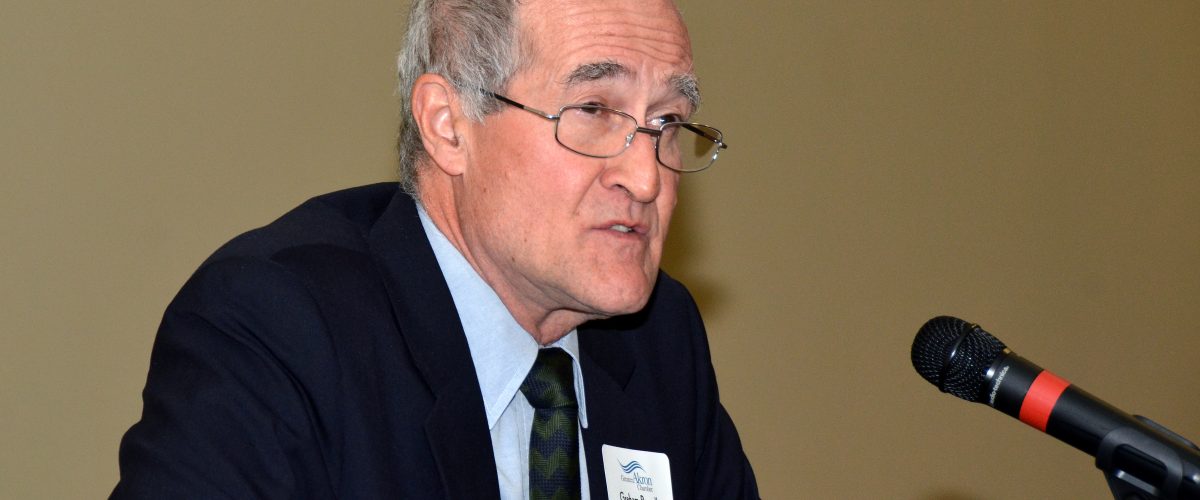
The CU Denver Business School is fortunate to have a number of exceptional Adjunct Professors, one of which is Graham Russell who has used his professional experience to become a better teacher in the classroom.
Russell received his MA in Economic Geography from Cambridge University, United Kingdom and his MBA Finance from Cranfield Institute of Technology, United Kingdom.
After some years in financial and strategic planning for a major British transportation and environmental services company, Graham transferred to US in 1977 to be CEO of a cargo shipping service between North America and West Africa.
He later developed a strategic plan to conduct a consolidation in the emerging, highly fragmented environmental testing laboratory industry and built a $50 million company with branches across the US which he was CEO of from 1985 – 1992.
Graham was later recruited as CEO to do a turnaround on a small, publicly quoted environmental laboratory company in Denver.
After some years doing strategic consulting work in the cleantech space, he became Executive Director of CORE, a sustainable business association (no-profit) in Denver.
Since 2010, Graham has taught sustainable business in the CU Denver Business School MBA Program with occasional consulting work and speaking/writing engagements. He is also the co-author of “A simple Path to Sustainability” (pub. Praeger 2010).
In being asked how all of his professional experience affects the way he teaches Graham said, “As a former CEO with 25 years’ experience of having to manage people and get things done, I feel I bring a “real world” element to my teaching activities. I’m able to approach students the way I believe they will find things to be in the world they’re entering: tough demands will be made on them; performance issues are addressed directly without sugar-coating; their managers will insist on great performance and they will be rewarded well if they can meet and exceed expectations. I provide the students with continuous feedback on their efforts, both in the class room and in the various assignments. They don’t always like it very much but I find they mostly appreciate it as it makes them think about how they can do better.”
“Also – and with particular reference to sustainable business – in the real world, green and sustainable business isn’t primarily about values and altruism: whether students like it or not, they will have to find ways to make “doing the right thing for the natural and human environment” a source of competitive advantage and improved financial performance through cost reductions, new product and service innovations, risk management etc. Finally, I know and have worked with (at CORE at subsequently), many of the region’s most visible and experienced sustainability professionals (in both corporations and local governments) so I’m able to bring in large numbers of guests speakers who provide real world examples of the challenges and opportunities they’re facing in terms of trying to make their organizations more sustainable and responsible. Again, this not only helps the students understand what it means to be a sustainable business professional, but also provides them with valuable networking contacts, field projects and internships.”
It’s safe to say the experience Graham has brought to CU Denver has had a huge impact on the students that have walked into his classroom.


